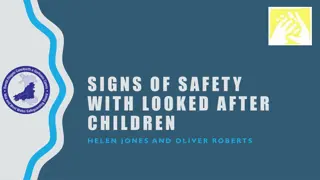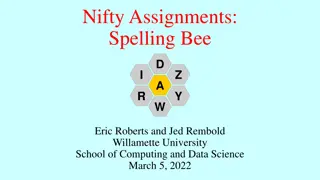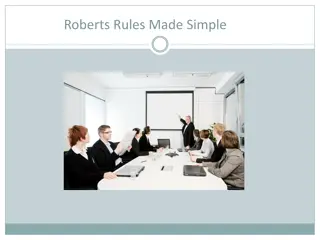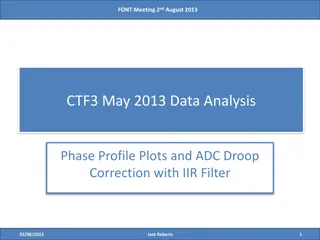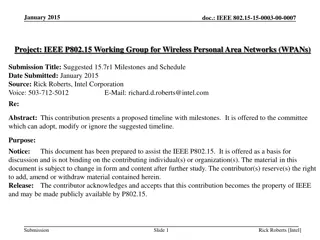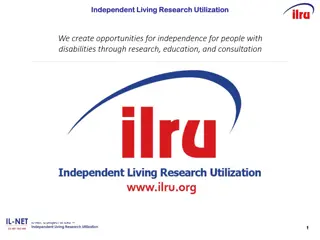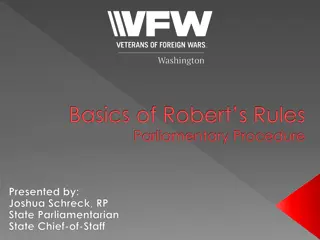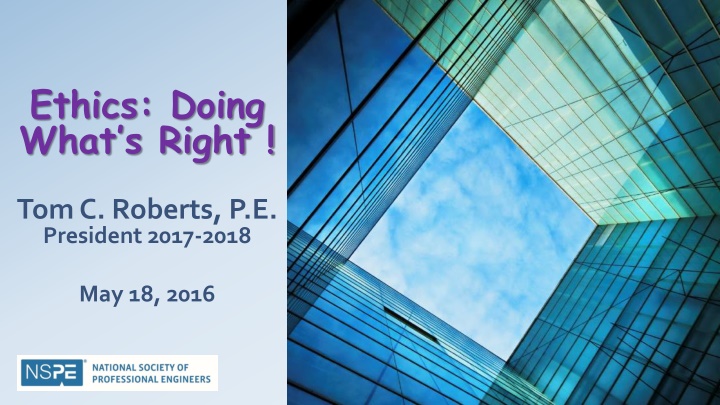
Changing Generations and Ethical Workplace Practices
This content delves into the dynamics of changing generations and ethical workplace practices. It discusses the importance of ethics, the NSPE Code of Ethics for Professional Engineers, and the University Honor System. It also explores the impact of generational shifts on careers and workplaces. The content provides insights into the challenges faced by different generations in the workforce and encourages discussions on these topics.
Download Presentation

Please find below an Image/Link to download the presentation.
The content on the website is provided AS IS for your information and personal use only. It may not be sold, licensed, or shared on other websites without obtaining consent from the author. If you encounter any issues during the download, it is possible that the publisher has removed the file from their server.
You are allowed to download the files provided on this website for personal or commercial use, subject to the condition that they are used lawfully. All files are the property of their respective owners.
The content on the website is provided AS IS for your information and personal use only. It may not be sold, licensed, or shared on other websites without obtaining consent from the author.
E N D
Presentation Transcript
Ethics: Doing What s Right ! Tom C. Roberts, P.E. President 2017-2018 May 18, 2016
NSPE Code of Ethics Professional Practice Canons, Rules of Practice, Professional Obligations, Licensed Professional Engineers.
University (Workplace) Honor System A Community of Integrity and Trust Imagine this......a campus (workplace) community where instructors (project managers) clarify their expectations for academic (project) work and students (workers) respect those parameters. Based on personal integrity, which is presumed to be a sufficient assurance that, in academic (workplace) matters, one's work is performed honestly and without unauthorized assistance.
YOUR CHALLENGE: WHAT HANDCUFFS ARE YOU WEARING? !!
Changing Generations (Growing Unrest / Conflict) 1946 1963 1st - High The 90 Year (Approx.) Path of Democracy 1964 1983 2nd - Awakening Control (Equality) Chaos (Freedom) 1984 2004 ? 3rd - Unraveling Saeculum 2005 2025 ? 4th - Crisis
The Four Generations * Time repetitions of basic social stresses. Four generations in an 80 to 90 year cycle. Civic GI 1901 - 1924 Adaptive Silent 1925 - 1942 Idealist Boomer 1943 - 1960 Reactive X 1961 1981 Civic * Adaptation from the book entitled The Fourth Turning, by W. Strauss and N. Howe Millennial 1982 2002 6
WORKPLACE:Next 15 Yrs Workforce Civic (Millennial): Ages 18 to 31 Reactive (X er): Current Age 32 to 52 Idealist (Boomer): Current Age 53 to 70 Civic (Millennial): Ages 18 to 24 College Students Adaptive ( ? ): Age -8 to 13 Civic (Millennial): Current Age 14 to 18 K 12 Students 7
Discussion/Reactions Discuss the Changing Generations and the impact on your career & workplace. Groups of 2 - Three Minutes To Discuss
Heinz Dilemma * A woman was near death from cancer. One drug might save her, a form of radium that a druggist in the same town had recently discovered. The druggist was charging $10,000, ten times what the drug cost him to make. The sick woman s husband, Heinz, went to everyone he knew to borrow the money, but he could only get together about half of what it cost. He told the druggist that his wife was dying and asked him to sell it cheaper or let him pay later. But the druggist said no. Heinz is desperate and thinking about breaking into the druggist s store to steal the drug for his wife. * Lawrence Kohlberg, 1981.
Why or Why Not? * Should Heinz steal the drug? If Heinz doesn t love his wife, should he steal the drug for her? Should Heinz steal the drug for a stranger? For a pet animal that he loves? Should people do everything they can to save another s life? It is against the law to steal. Does that make it morally wrong in this case? Should people do everything they can to avoid breaking the law? * Deborah Long, Chapel Hill, NC.
DOMAINS OF ETHICS Personal Religious Lifestyle Smoking Drinking Gambling Cursing Debt Nudity Sexuality Ideological Condom / Needle Distribution Capital Punishment Abortion Euthanasia Gun Control Welfare Sins Ten Commandments Blasphemy & Heresy Violating Dietary Laws Sexual Behavior Lying & Theft Gluttony Sloth Lifestyle Faith Hope Charity Six Pillars of Character TRUSTWORTHINESS RESPONSIBILITY CITIZENSHIP FAIRNESS RESPECT CARING Cultural Universal Customs Birth & Death Coming of Age Marriage Divorce Fidelity Gifts / Bribes Punishment Respect Responsibility Justice Accountability Compassion Kindness Fairness Tolerance Mores Gender Roles Religious Observation Fighting & Violence Love Unity Respect for Laws Honesty Trustworthiness Integrity Loyalty
STAGES of DEVELOPMENT STAGE 6 STAGE 1 Obey or Pay Outside the Group Universal Ethical Principals Above the Group STAGE 2 Self-Interest Outside the Group STAGE 5 Critical Thinking Above the Group KOHLBERG S SIX STAGES STAGE 4 Law and Order Inside the Group STAGE 3 Peer Pressure Inside the Group
STAGE 1 Obey or Pay I should do as I m told. Why: To stay out of trouble.
STAGE 2 Self-Interest The reason to be nice to people is so that they will be nice to you. Why: Look out for #1.
STAGE 3 Peer Approval The reason to be good is to please other people. Why: So people will like me.
STAGE 4 Law and Order Being good means obeying the law and being a dutiful citizen Why: To keep the system from falling apart
STAGE 5 Critically Examined Values The rules of society are supposed to exist for all, but if the rules become destructive, or if one party doesn t live up to them. Then the contract is no longer binding. Why: To keep the my society from falling apart
STAGE 6 Universally Accepted Principles Universal principles establish right and wrong. These principles are established by individual reflection and may even contradict laws Why: Because my conscience tells me what to do
Discussion/Reactions Discuss/compare the 6 stages and identify workplace examples of behavior in stages 3 - 5. Groups of 2 - Four Minutes To Discuss
STAGES of DEVELOPMENT STAGE 6 STAGE 1 Obey or Pay Outside the Group Universal Ethical Principals Above the Group STAGE 2 Self-Interest Outside the Group STAGE 5 Critical Thinking Above the Group KOHLBERG S SIX STAGES STAGE 4 Law and Order Inside the Group STAGE 3 Peer Pressure Inside the Group
Ethics: Doing What s Right ! Questions ??







